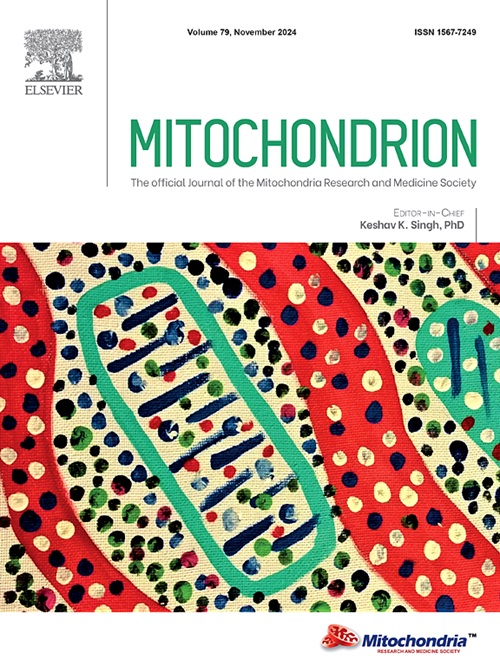Urolithin-A supplementation alleviates sepsis-induced acute lung injury by reducing mitochondrial dysfunction and modulating macrophage polarization
IF 4.5
3区 生物学
Q2 CELL BIOLOGY
引用次数: 0
Abstract
Sepsis is a severe and life-threatening condition marked by excessive inflammation, mitochondrial dysfunction, and epithelial barrier disruption, often leading to Acute Lung Injury (ALI). Mitophagy, a cellular mechanism that removes damaged mitochondria, plays a vital role in maintaining mitochondrial health during sepsis. In this study, we investigated the protective effects of Urolithin-A against ALI and sepsis. In LPS-stimulated RAW264.7 macrophages, Urolithin-A significantly reduced mitochondrial dysfunction, Reactive Oxygen Species (ROS), Nitric Oxide (NO) production, and apoptosis. Additionally, it enhanced mitophagy by upregulating PINK1, Parkin, and LC3-II, which helped preserve mitochondrial function.
In vivo, Urolithin-A treatment in mouse models of ALI and sepsis reduced lung injury and inflammation, as shown by improved ALI scores, decreased wet/dry lung weight ratios, and lower levels of inflammatory markers such as iNOS, IL-1β, and MPO. Urolithin-A also improved epithelial barrier integrity and upregulated anti-apoptotic markers, demonstrating its ability to alleviate sepsis-induced lung damage. These findings suggest that Urolithin-A holds significant promise as a therapeutic agent for managing inflammatory lung conditions associated with sepsis.
补充尿石素- a可通过降低线粒体功能障碍和调节巨噬细胞极化来减轻败血症引起的急性肺损伤
脓毒症是一种严重的危及生命的疾病,其特征是过度炎症、线粒体功能障碍和上皮屏障破坏,通常导致急性肺损伤(ALI)。线粒体自噬是一种清除受损线粒体的细胞机制,在脓毒症期间维持线粒体健康方面起着至关重要的作用。在这项研究中,我们研究了尿石素- a对ALI和脓毒症的保护作用。在lps刺激的RAW264.7巨噬细胞中,尿石素- a显著降低线粒体功能障碍、活性氧(ROS)、一氧化氮(NO)的产生和细胞凋亡。此外,它通过上调PINK1、Parkin和LC3-II来增强线粒体自噬,这有助于保持线粒体功能。在体内,尿石素- a治疗ALI和脓毒症小鼠模型可减轻肺损伤和炎症,如ALI评分提高、肺干/湿重比降低、炎症标志物如iNOS、IL-1β和MPO水平降低所示。尿石素-a还能改善上皮屏障的完整性,上调抗凋亡标志物,证明其能够减轻败血症诱导的肺损伤。这些发现表明尿石素- a作为治疗与败血症相关的炎症性肺部疾病的治疗药物具有重要的前景。
本文章由计算机程序翻译,如有差异,请以英文原文为准。
求助全文
约1分钟内获得全文
求助全文
来源期刊

Mitochondrion
生物-细胞生物学
CiteScore
9.40
自引率
4.50%
发文量
86
审稿时长
13.6 weeks
期刊介绍:
Mitochondrion is a definitive, high profile, peer-reviewed international research journal. The scope of Mitochondrion is broad, reporting on basic science of mitochondria from all organisms and from basic research to pathology and clinical aspects of mitochondrial diseases. The journal welcomes original contributions from investigators working in diverse sub-disciplines such as evolution, biophysics, biochemistry, molecular and cell biology, genetics, pharmacology, toxicology, forensic science, programmed cell death, aging, cancer and clinical features of mitochondrial diseases.
 求助内容:
求助内容: 应助结果提醒方式:
应助结果提醒方式:


